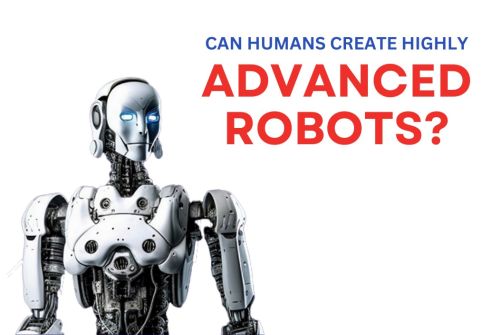
Can humans create highly advanced robots?

You’ve probably watched Godzilla vs. Kong (2021) and remembered the jaw-dropping scene where humans create Mechagodzilla—a robotic version of Godzilla, but far more powerful than the original. That unforgettable moment when Godzilla couldn’t take down Mechagodzilla on his own stands out. Then, in an unexpected twist, Kong sets aside his pride, unites with his former enemy, and joins forces with Godzilla to bring down the mechanical menace.
Now, you might think I’m just promoting the movie, but that’s not the case. This scene sparked something interesting in my mind. Could humans actually develop such a groundbreaking piece of technology? A robot so advanced, so impressive, that it would leave people in sheer awe. Could we one day create something so powerful that it could potentially change the course of how we view technology and machines? It makes you wonder just how close we are to turning science fiction into reality.
Across the globe, talented engineers are sharpening their skills and harnessing available resources to create robots that not only benefit society but could even replace human workers in both physical and digital realms. Perhaps you've seen or heard of a robotic waiter in restaurants that takes orders and serves food or the advanced robots used in mass manufacturing industries. These robots excel at repetitive tasks or jobs that require high precision, making them incredibly valuable.
But here's where it gets exciting: Artificial Intelligence is taking things to the next level. With AI, robots are no longer just programmed machines; they can use intelligence—though not quite like human intelligence, but a version that's incredibly efficient. Now, you might be thinking, "What if I could build a robot that does all the work for me, and I only need to give the orders?" Well, I say, absolutely! If you have the right knowledge in mechatronics and intelligent machines, you can make it happen. This is where the power of knowledge comes in. You might be wondering, "Where can I study this cutting-edge field?" The answer is here, and it's closer than you think.
I have the perfect answer for you! If you’re passionate about machines and want to dive into the world of mechatronics and intelligent machines, you should definitely check out the BEng (Hons) Mechatronics and Intelligent Machines course at the University of Lancashire in the UK.
UCLan offers you access to cutting-edge equipment and facilities at their impressive £35 million Engineering Innovation Centre. Here, you'll have the chance to work on real-world projects in collaboration with commercial partners, using state-of-the-art resources. It’s the ideal environment to turn your passion for machines into a successful career, with the hands-on experience and knowledge you need to build the next generation of intelligent robots.
There are compulsory modules and optional modules throughout the course.
This module covers the essentials of mechatronic systems, including sensors, actuators, controllers, and signal conditioning. You’ll also learn about the software used in system development, supported by real-world case studies.
This module covers the key elements of electromechanical systems, including motion transmission, motion sensing, actuator selection, sequential controller design, digital I/O, and various drives (DC-AC) and industrial controllers. It also explores the role of electromechanical systems in mechatronics and intelligent machines.
This module teaches you the key methods for developing an effective maintenance program for industrial plants, providing a solid understanding of both the theory and practice of various maintenance types to achieve optimal performance.
This module guides you through the process of investigating and designing a product, system, or service. It includes research, analysis, design, evaluation, testing, manufacturing, and studying current developments to create new knowledge, methods, or applications.
In this module, you will learn to design and analyze simple robotic systems to tackle engineering challenges while also exploring how to integrate AI with machines and robotics.
This module covers the fundamentals of programmable logic controllers (PLC), including hardware architecture and programming. It also explores PLC, DCS, HMI, SCADA, and their applications in mechatronics systems.
This module involves a research project on a topic of your choice, to be selected and agreed upon in collaboration with your supervisor.
This module introduces you to engineering simulation using computer simulation software.
The School of Engineering has strong connections with leading employers in aerospace, automotive, and civil engineering, including BAE Systems and JLR, along with industry support organizations like the NW Aerospace Alliance and the Northern Automotive Alliance.
Required documents for UK student visa
New technologies are reshaping our world, and you could be the next to bring a groundbreaking innovation to life. This course offers a deep dive into the game-changing advancements that will define the future of machines. Apply now with Bizz Education—we’re here to guide and support you every step of the way toward achieving your educational dreams.